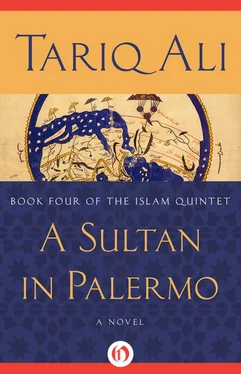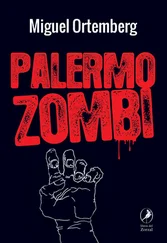‘Why do I tell you this? Because how you decide to live after your victory will determine how long you will survive. If one of you decides to become the lord of the land and the rest of you accept, then you will not last long. If you work together, share your food, look after each other, as many of our people did in the early days, then your community might survive. A way of life that protects the interests of all is a way of life people will die for. What is taught from the lips of those who use laws and customs to defend property that they have stolen in the first place or have inherited from those who stole it is worthless. Be bold. Forget them. What you have accomplished today is worth more than all our customs. I am not one of those who believe that Allah decides all our actions on earth. If that were so, he would be a monster. What then would be the point of a Day of Judgement? I see the children are already asleep. It has been a long hard day. We all need some rest. We can speak more tomorrow. I will spend some weeks with you.’
That night, wrapped in his blanket, the Trusted One made his bed on the floor of the newly built church that, despite its proximity to the burnt building, had not suffered any damage. He lay awake brooding on the day’s events. This was his first real triumph since he had left Cairo. In the past he had dreamed of writing a philosophical treatise that would demolish the foundations of al-Ghazali’s system of thought and defend the work of Ibn Rushd. It would provoke a theological earthquake and he would be its cause. His notes had been nearly finished when his lover had taken her own life. He had abandoned everything and became an ascetic, but what had happened today was more important than his philosophy. Of course, without the scepticism he had imbibed he would not have had the courage to do what was required.
What had shaken him tonight was catching sight of a young woman, listening to him speak, who was the replica of his long-dead Bulbula. Did she have a sister? It had taken him many years to recover from her loss, and now this coincidence was unsettling. He needed to know if she was a relation. He would ask at daybreak.
But when dawn came, the thought fled as he went to see his men. He sat with them and broke bread while they remembered their fallen friends. Then he asked if any of them would settle in this village to give the villagers a sense of security. If twelve of them could stay, he would be able to move on with the others in the hope of repeating their victory near Siracusa. After a brief discussion twelve volunteers stepped forward, but they all insisted on the same condition: the Trusted One would send for them if ever he needed more men. He agreed and embraced each in turn. Raising their voices, they shouted in unison: ‘Long life to the Amir al-Jihad!’ He informed them in a quiet voice that he would rather be the Trusted One than an Amir of any description. His men never used the title again.
For the rest of the day the peasants showed him the extent of the estate attached to the castle. Thousands of acres extending on each side of the village, long uninhabited and uncultivated. Ibn Hamza’s family had settled here two hundred years ago and the peasants told him their families had been here for almost as long. Five generations had lived in peace until the Nazarenes arrived twenty years ago.
‘How many of them came? Why didn’t you resist?’
The older men began to shift uneasily, pretending they hadn’t understood him. It was one of the younger peasants who replied. ‘Hamza ibn Omar, the lord of the land, was undecided whether to convert or not. He left it a bit too late and only converted to their faith a week before the Lombards arrived. They roared with laughter when they were told. The Bishop offered to let him go if he would tell them where the gold was hidden. He wept and fell on his knees and swore repeatedly there was no gold. They slew him and his family before our eyes. I was ten years old and the memory still tortures me. Several young children were decapitated. After that few could think of anything but how best to survive. Each for himself and his family.’
The Trusted One put his arm around the peasant’s shoulders. ‘Can you read and write?’
He nodded. ‘My mother was a cook and worked for Ibn Omar’s family. So I used to play with the children and learnt to read and write with them.’
‘And afterwards?’
‘Nothing. The Lombards, most of them could not read, threw out all the books from the library and lit them, but Allah decided it would rain that day. We children saved the books and they are hidden in different homes. I never stopped reading even when I couldn’t understand more than three sentences on a page. My wife has named me Ibn al-Kitab.’
The others laughed, but the Trusted One hid his delight at discovering such an erudite peasant. Open praise would have excited the envy of the others.
‘Ibn al-Kitab is a good name. I need you to question everyone and compile a register. I want to know which peasant worked on which field, how many hours were worked before and after the Nazarenes came. Then I want you to compile another register dividing the land equally between all the peasant families. This register must be backdated thirty years. I will sign the deeds on behalf of Hamza ibn Omar. This is to safeguard all of you against any authority. You had nothing to do with burning the Bishop or killing the Lombards. Blame the men who came from outside. In any case, why should you wish to kill anyone when your lord gifted the land to you thirty years ago? One more request to all of you. You must consult everyone before you reach your decision. Twelve of my men wish to settle here. They will work alongside you and, if it ever becomes necessary, defend you. But they must have an equal share in the land.’
The twenty or so peasants accompanying him nodded gratefully, assuring him that there would be no problem about his men. But he insisted that the village should decide this collectively. Ibn al-Kitab asked, ‘When you say the land should be divided equally, does that include Yuhanna, the monk?’
‘Does his family live here?’
‘Yes.’
‘Then he must be included. We can afford to be generous. There is a great deal of land, as we have just seen, and best to share it with everyone.’
As they were walking back, Ibn al-Kitab whispered, ‘I would be honoured if you would join us for the evening meal.’
‘I would like that and then you can show me some of the books you saved from the fire.’
Later that afternoon, after the peasants had returned from work a large mehfil was convened in the square. Ibn al-Kitab spoke of the plan that had been suggested by the Trusted One. It was greeted with shouts of joy. Then a semi-spontaneous chant erupted, during which the Trusted One’s men remained silent: ‘Long life to the Amir al-Jihad.’
The Trusted One rose. He told them it was their own strength that would now take them forward. He could do no more for them. Within a week they would have the deeds to their land and the register must be kept hidden in a safe place known only to ten families. It was only to be shown to the Emir of Siracusa or his agents, never to the Lombard who would immediately destroy it. That they were involved in a deception was undeniable, but he felt sure that Allah and God and the Prophets Muhammad and Isa would forgive them because they were correcting a grievous injustice that had been done. All that was necessary was that they tell the same story to anyone from outside who asked questions regarding the land. And he made one last appeal. The land now belonged to them, but he would urge them to make sure each family was fed, had milk and water and fruit before they sold the produce in the market. And they should make sure to rebuild their mosque. As he walked away from the throng, people of all ages touched him in silent appreciation. Ibn al-Kitab took his arm. ‘Trusted One, if you could achieve the same in other places on this island we could raise an army that would take Palermo.’
Читать дальше












